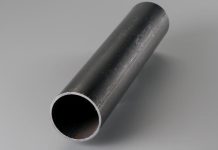Hydroxypropyl Methylcellulose (HPMC) has become an indispensable ingredient in modern construction and industrial applications. From enhancing tile adhesives and wall putty to improving coatings, detergents, and pharmaceuticals, HPMC ensures high performance, durability, and consistency. Because of its wide use, the choice of supplier becomes critical. An experienced and reliable source guarantees not only quality but also compliance with global standards.
Why Selecting the Right HPMC Supplier Matters
Finding a trustworthy HPMC supplier is essential for companies seeking consistent product performance. High-grade HPMC ensures uniform viscosity, excellent water retention, and stability in different formulations. Inferior quality, on the other hand, can result in product failure, weak bonding, or inconsistent texture in applications like construction materials and coatings. Thus, the supplier you choose directly affects the efficiency and success of your projects.
Key Qualities of a Reliable HPMC Supplier
Product Consistency
Consistency in viscosity, particle size, and moisture content is crucial for predictable results. A dependable supplier ensures that every batch matches technical specifications.
Technical Support
Beyond selling raw materials, leading suppliers provide technical guidance. They help clients select the right grade of HPMC depending on whether it is for construction mortars, pharmaceutical coatings, or personal care products.
Compliance with Standards
An established supplier adheres to international quality standards such as ISO certifications and industry-specific benchmarks. This ensures safety, stability, and reliability across different applications.
Customization Options
Industries often require tailored solutions. A good supplier can offer custom grades of HPMC to meet specific needs, such as higher water retention for tile adhesives or enhanced workability for plasters.
Sustainable Practices
With sustainability becoming a priority, many companies now evaluate suppliers based on eco-friendly practices. This includes responsible sourcing, reduced waste, and energy-efficient production.
Applications of HPMC Across Industries
Construction Industry
HPMC is widely used in tile adhesives, wall putty, gypsum-based plasters, and self-leveling compounds. It improves water retention, prevents sagging, and enhances bonding strength, ensuring longer durability of structures.
Pharmaceutical Industry
In medicine, HPMC serves as a binder, film former, and controlled-release agent in tablets and capsules. Its non-toxic and biocompatible properties make it safe for use in oral and topical drugs.
Personal Care and Cosmetics
Shampoos, creams, and lotions often contain HPMC as a thickener and stabilizer. It enhances the texture and spreadability of formulations, giving products a premium feel.
Detergents and Cleaning Products
In cleaning agents, HPMC functions as a thickener and stabilizer, ensuring consistent viscosity while improving performance in both liquid and powder forms.
Food Industry
HPMC is used in certain food applications as an emulsifier, stabilizer, and vegetarian substitute for gelatin. Its safety profile and functional benefits make it an important additive.
How to Evaluate an HPMC Supplier
1. Check Technical Data Sheets
Reviewing technical data ensures the product meets viscosity, moisture, and pH requirements. Suppliers should provide transparent and detailed information for each grade.
2. Assess Research and Development Capabilities
Suppliers with strong R&D departments continuously innovate, creating new grades and improving formulations to meet evolving industry demands.
3. Request Trial Samples
Reliable suppliers often provide samples for testing before large orders. This helps clients evaluate performance in their specific applications.
4. Examine Supply Chain and Logistics
Timely delivery is critical, especially for large-scale projects. Suppliers with efficient logistics and global reach minimize delays and ensure consistent supply.
5. Read Customer Feedback and Reviews
Past experiences of other businesses reveal a supplier’s reliability, customer service, and product quality.
Global Market Trends in HPMC Supply
The demand for HPMC is rising, particularly in construction and pharmaceutical sectors. Emerging economies are driving growth, while global suppliers are focusing on expanding production capacity and developing eco-friendly alternatives. Digitalization in supply chains also allows for better communication and faster delivery, improving overall supplier-client relationships.
Common Challenges in Sourcing HPMC
- Price Fluctuations: Raw material costs can impact HPMC pricing. A stable supplier manages these fluctuations through efficient procurement strategies.
- Quality Variations: Not all suppliers maintain strict quality control, leading to inconsistent performance in end-use applications.
- Limited Technical Support: Without proper guidance, buyers may select unsuitable grades, causing inefficiency in products.
- Environmental Concerns: Sourcing from suppliers with outdated, non-sustainable methods may impact brand reputation.
The Future of HPMC Supply
The future of HPMC supply is geared toward innovation, sustainability, and specialization. Biodegradable grades, enhanced water-retention polymers, and eco-conscious production processes are expected to dominate the market. Suppliers who invest in research and green technologies will likely set the benchmark for reliability in the years ahead.
Conclusion
HPMC plays a crucial role across multiple industries, but its performance relies heavily on the quality provided by the supplier. Choosing the right partner ensures consistent product results, technical support, and sustainable practices. By considering factors such as product consistency, compliance, and R&D capabilities, businesses can confidently select an HPMC supplier that aligns with their operational needs and long-term goals.




